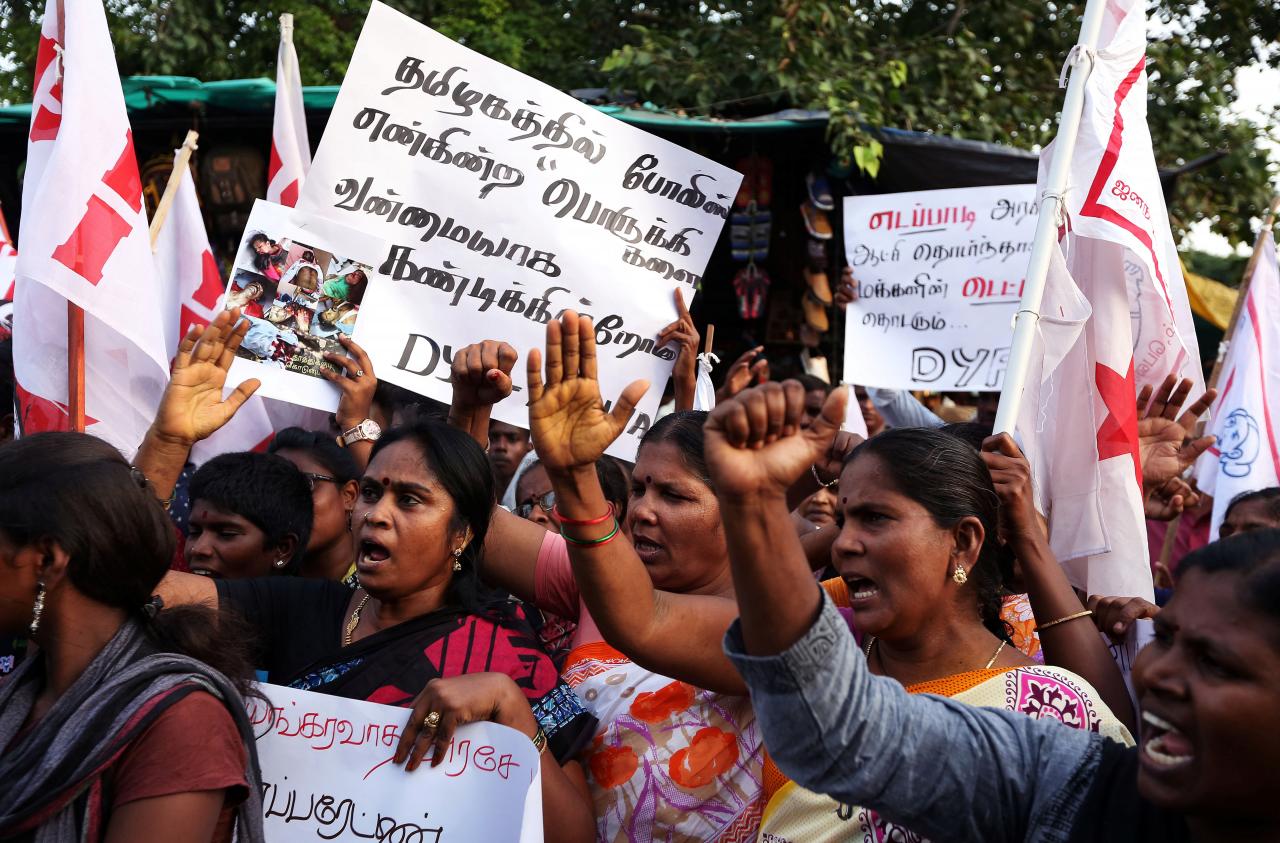Vedanta project paused after protests
May 24, 2018 | Expert Insights

Multinational metals and mining company Vedanta Resources has been asked to pause its expansion project and temporarily shut down its copper smelter in southern India after protests. Protestors claimed that pollution from the plant was detrimental to the local population.
Vedanta has been accused of a number of environmental breaches. In 2010, the Church of England sold its £3.8m stake in Vedanta over concerns about its human rights record.
Background
Vedanta Resources is a metals and mining company established in Mumbai in 1976 by Anil Agarwal. The natural resource company primarily deals in mining and manufacturing copper and aluminium. It also has investments in power, silver, zinc, lead, and iron ore. Its power business includes a 2,400-megawatt thermal coal-based facility in the state of Odisha. Currently headquartered in London, the company has mining operations in India, Australia, and Zambia, and has offices in South Africa, Namibia, the United Arab Emirates, Ireland, and Liberia.
Sterlite Industries is a subsidiary of Vedanta Resources based in Mumbai. It primarily engages in copper mining in Thoothukudi, India. Vedanta currently holds a 36% market share in India’s copper industry. The company’s Indian facilities include a custom smelter, a refinery, a phosphoric acid plant, a sulphuric acid plant, captive power plants, copper smelting, and copper rod plants.
Vedanta may be best known in India for its infamous Niyamgiri Hills project in the state of Odisha. The Odisha government supported Vedanta’s bid to mine bauxite in the hills, which were also home to a tribal population of 8,000, for its neighbouring aluminium plant. The company was met with widespread protests and resistance from the Dongaria Kondh tribe and civil society groups. Its bid was turned down by the Supreme Court and the Ministry of Environment and Forest. Vedanta’s proposal was found to be in violation of the Forest Rights Act, the Forest Conservation Act, the Environment Protection Act, and the Panchayats (Extension to Scheduled Areas) Act.
Vedanta has also faced other environmental issues. In 2012, the Goa State Pollution Control Board asked the company to stop its coke mining operations at Navelim in Bicholim taluka in Goa due to air quality concerns. In 2015, the Zambian Supreme Court ruled that a spillage from Vedanta’s Konkola Copper Mines had severely polluted the Mushishima stream in Chingola region of Zambia. Last year, the affected villagers won the right to sue the company. In 2017, Vedanta shut down operations in a 1,980-megawatt thermal power plant in Punjab after a fire. The plant had been previously hit with a fine of Rs. 500,000 for flouting environmental norms.
Analysis
The Madras High Court has ordered Vedanta’s Sterlite Copper plant in Thoothukudi (Tuticorin) to stop its plans to double the size of the plant to 800,000 tonnes. “Vedanta shall cease construction and all other activities on-site proposed Unit-II of the Copper Smelting Plant at Tuticorin with immediate effect,” the court said. A mandatory public hearing has been called and Vedanta’s environmental approval is reportedly being considered by the “appropriate authorities.”
On 23rd May, the Tamil Nadu Pollution Control Board (TNPCB) also noted, “The issue of renewal of consent for the year 2018-2023 has been rejected ... due to noncompliance of certain conditions.” The plant had resumed activity last week without the permission of the TNPCB. An order has now been issued to cut power to the plant.
The Thoothukudi site has already been shut for over 50 days. Local residents and activists have rallied against the plant for months, protesting against the emissions from the smelter. Residents claim that the pollution affects health and effluents pose a risk to the local fishing industry. The protests turned violent and 11 people have been killed by local police in the past week. The police said that 18 policemen have been injured as well. The Chief Minister of the state has issued a judicial inquiry into the shootings. In the meantime, local authorities have imposed a curfew and cut off internet access for five days, reportedly to prevent the spread of “rumours.”
Vedanta has maintained that the protests are based on “false allegations”. CEO of the Vedanta-Sterlite Copper subsidiary said that Vedanta “had always been compliant with environmental norms in its operations,” the Hindu reported. Meanwhile, founder and chairman Anil Agarwal said that it was “sad” to hear about the incident. “It is very unfortunate,” he said. “For us, the community and our people are very important. We have done everything possible to ensure the safety of our people and protect the plant,” he said.
Agarwal recently told Financial Times that he plans to step back his involvement in the company. Agarwal has previously insinuated that there are external forces invested in keeping India reliant on foreign imports. “Certain vested interests will prefer India to remain import dependent and use our country as their market, making India spend hard-earned foreign exchange and lose millions of jobs,” he said.
Assessment
Our assessment is that environmental issues such as pollution have very real consequences on the quality of life and livelihood of local populations. We believe that industries must adhere to local environmental regulations. Vedanta and other repeat offenders must be held accountable to the law. Additionally, we feel that Vedanta constitutes a large proportion of the domestic copper industry, and the shutdown of the Thoothukudi plant could benefit domestic rival Hindalco Industries.








Comments